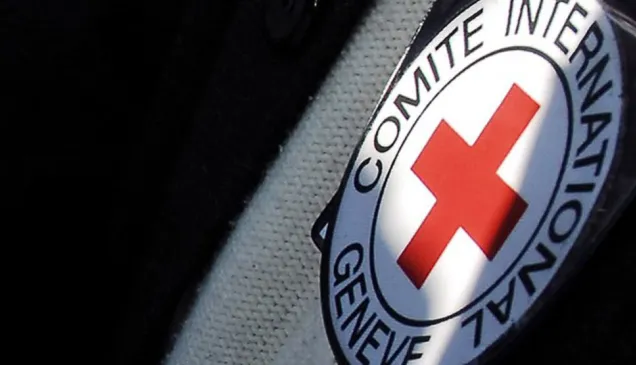Gaza: corn on the corniche
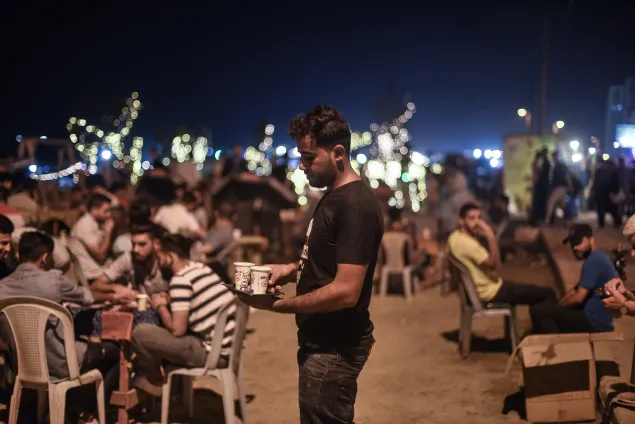
Fadi al-Omari, 26, brings hot drinks to the tables of customers in his cafeteria overlooking Gaza’s corniche. They cost just 1 to 2 shekels each.
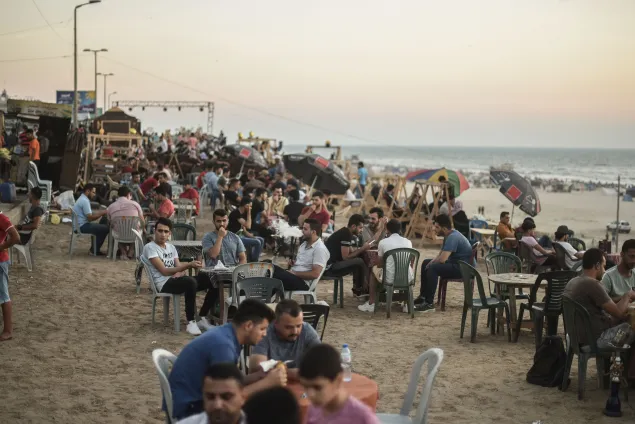
Youngsters spend their free time in Fadi’s cafeteria, playing cards, smoking shisha and enjoying hot drinks. The place serves as a rare outlet for many young Gazans, given its affordability amid widespread economic hardship.
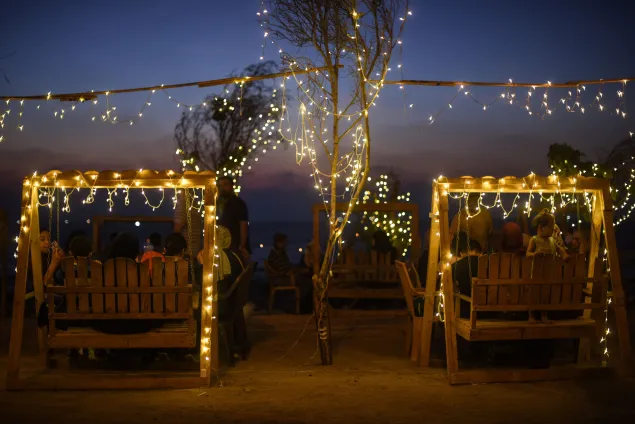
Fadi al-Omari, the owner of “fakher a’al akher” cafeteria, which translates into English as “the most exquisite” cafeteria, decorated its wooden-pallet seats with rope lights to attract more customers and add a touch of sophistication to Gaza’s corniche.
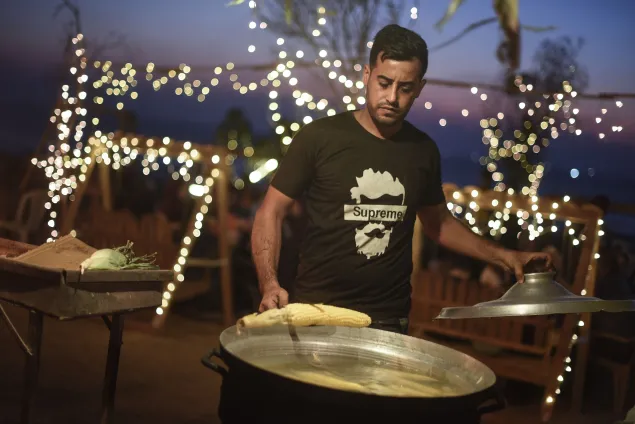
Fadi al-Omari boiling corn, the most sought-after snack on Gaza’s corniche.
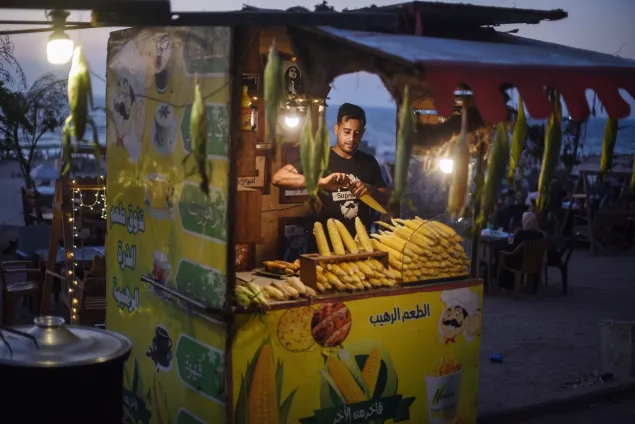
Fadi al-Omari arranging boiled corns-on-the-cob in the kiosk of his “fakher a’al akher” cafeteria, which translates into English as “the most exquisite” cafeteria, on Gaza’s corniche. The customers receive their corn hot, just as they like it, for 1 shekel per cob.
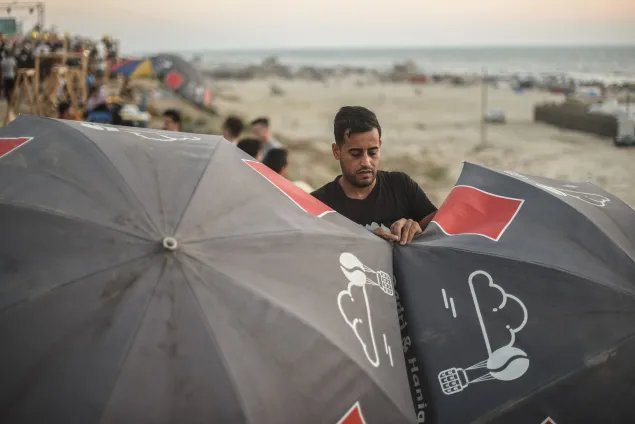
Fadi al-Omari putting up umbrellas in his cafeteria on Gaza’s corniche.
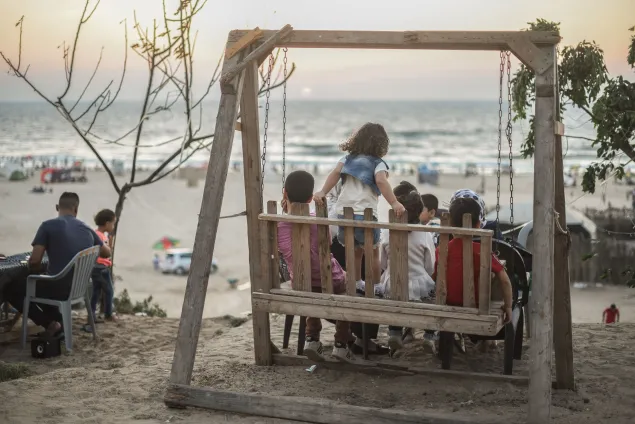
Families spend happy times watching the sunset on Gaza’s corniche. They enjoy swinging on the wooden-pallet swings, set up for children and adults alike.
“From poverty arises creativity.”
Those were the words of Fadi al-Omari as he talked about the small cafeteria he had set up on Gaza’s corniche, the Strip’s seaside promenade. The 26-year-old came up with the idea while unemployed and in need, knowing he had to provide for himself and his family.
Fadi received a diploma from an industrial school but never found a job related to his studies, just like thousands of other young men and women struggling with the unemployment crisis in Gaza.
He started off with a modest kiosk, selling what is an attractive and affordable snack for Gazans: grilled corn on the cob.
“My three brothers and I developed this project. We wanted to create a modest yet attractive cafeteria. We added lights to decorate the benches, giving a distinctive aesthetic value to the place, hence attracting more clients,” he says.
Fadi and his brothers made the benches from inexpensive wooden pallets. They worked hard to create the final product, then they set up rope lights around the benches, giving the place a pleasant and sophisticated touch.
The “illuminating seats” have become the distinctive feature of Fadi’s cafeteria. Many young people and families go there just to take pictures and enjoy the beautiful sea view.
Talking about the challenges that stood in his way while working on the project, Fadi said: “Power cuts in the Gaza Strip are a serious problem. We had to subscribe to a generator for 150 shekels per month. We also get worried the municipality would shut down the cafeteria as it opposed such projects in the corniche area.”
The small project helps cover the expenses of Fadi’s family, which consists of eight members, in addition to his wife and two children. Recently, four new families have also become dependent on the income generated by this project, since al-Omari gave them jobs there.
“We sell hot drinks and corn on the cob at low prices, and we try to attract as many customers as possible by adding decorations to the cafeteria,” he says. “We do all this in the hopes of staying in business, or else all our efforts would be in vain.”



